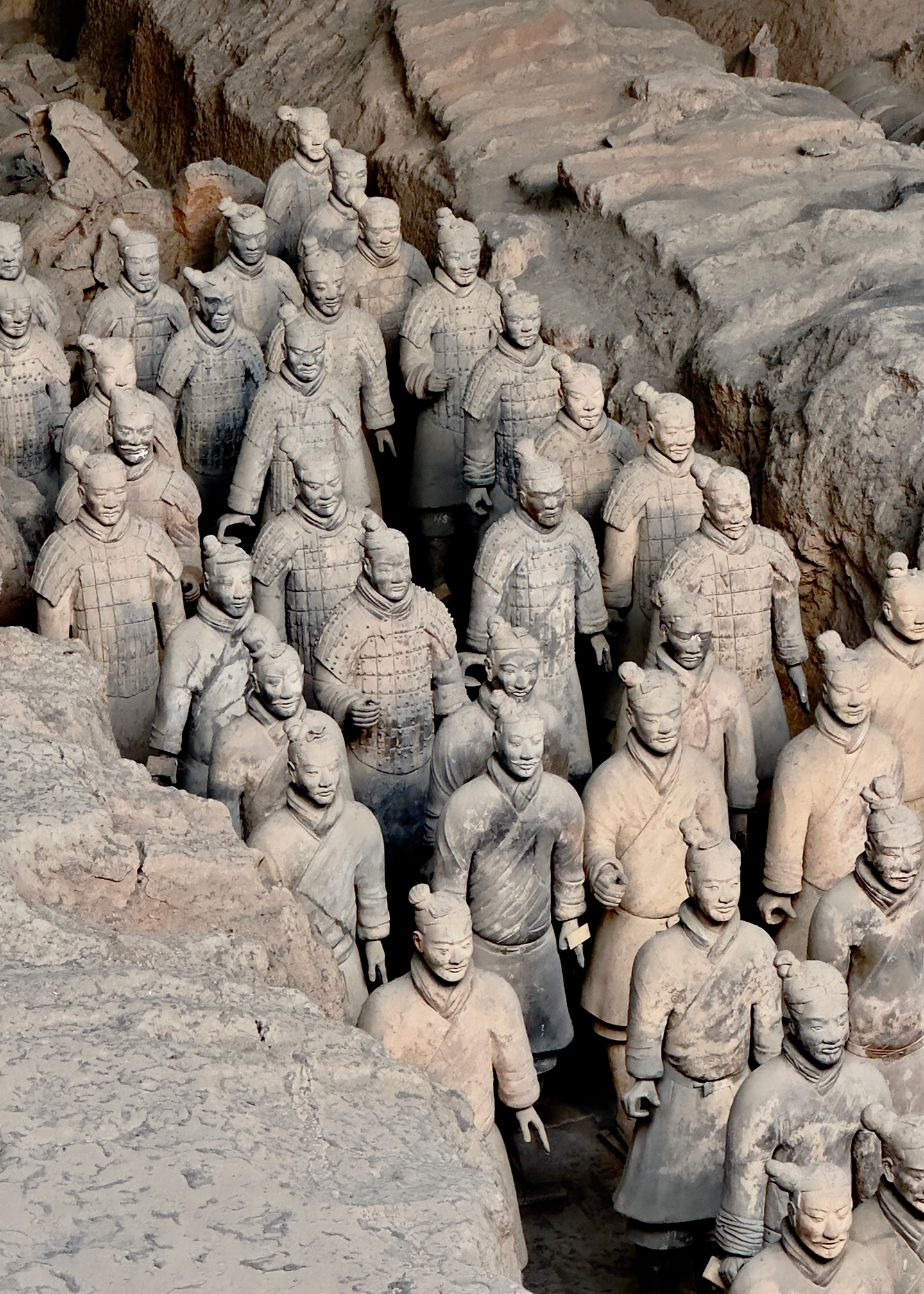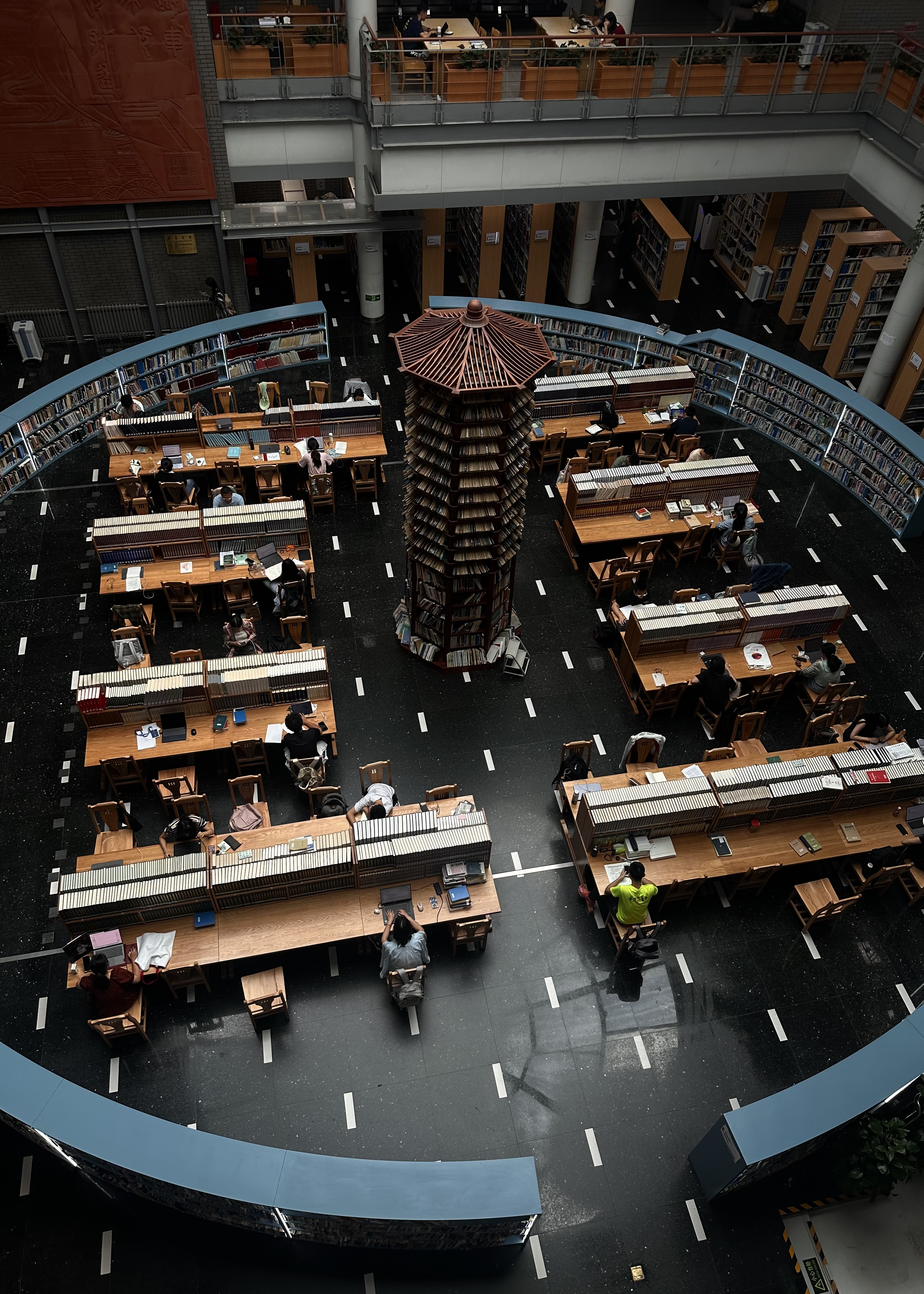Why China?
I spent an exchange year in Shanghai as a high school student seven and a half years ago. When people asked me, “Why China?”, my answer was rather simple: I wanted to do something different, something that not everyone else was doing. Learning Mandarin and exploring a country so different from my own felt like an adventure worth taking on. That year turned out to be more than just an adventure. It shaped my personality and set the course for my academic journey. During my studies at the university, I focused on East Asian affairs. I built a more nuanced understanding of the region over time, spending another exchange semester at the National University of Singapore and, most recently, at Peking University — known in Mandarin as “Beida”. In what ways has my understanding of China evolved over these years? What new perspectives and nuances have emerged from my semester abroad at Peking University?
Perspectives, Perceptions, and Paradoxes
China’s rise as a global superpower is undeniable, and yet it remains a country of many layers of perspectives, perceptions, and paradoxes. “Understanding” China is not straightforward. It requires peeling back many layers of history, culture, and modernity to grasp its complexities. These layers shift depending on where you are: a classroom discussion offers one perspective, while daily life on the streets of Beijing, Shanghai, or Xi’an presents a different one. The bustling night markets of Xishuangbanna, near the borders of Laos and Myanmar, the quiet countryside of Guizhou, or a train ride through the remote far west of China each reveal yet another reality. For me, every place offered new insights which defy any single narrative.
In my course on Chinese Politics and Public Policy at “Beida”, Prof. Shaohua Lei emphasised 2025 as a critical year for China, pointing to mounting challenges such as significant youth unemployment among university graduates, a slowing economy, rising geopolitical tensions, and structural issues like the middle-income trap and an ageing demographic. From the perspective of Switzerland, where public demonstrations and freedom of speech are fundamental channels for expressing opinion, I was curious to learn how frustration and dissatisfaction are expressed in a country where such outlets are restricted.
I did not receive a straightforward answer, because the conversation shifted to the remarkable convenience of life in China, particularly in its big cities. Transportation in China is seamless, with bike-sharing systems on every corner, affordable metro networks, and electric vehicles becoming the norm. Beijing taxis, for instance, are transitioning to electric. Once, during a ride, the driver stopped at a battery-swapping station, and within minutes, we were back on the road. High-speed and sleeper trains connect distant regions effortlessly. Beyond transport, apps like Taobao, akin to a Chinese version of Amazon, allow you to buy almost anything with a few taps, food delivery apps bring meals quickly and cheaply, while all-in-one apps like WeChat or Alipay combine communication, shopping, travel booking, food delivery, and bill payments. These apps are essential for modern life in China. It’s undeniable — life in China is convenient, perhaps even too convenient at times as it encourages overconsumption. I noticed it in my own changing spending habits and could not help but wonder about my neighbor who had new packages at his door almost every day — what was he buying? Can the Chinese model continue to thrive, or will it require adjustments soon? It’s a difficult question to answer, but one I am keen to see unfold.
Beyond Textbooks
One of the most important lessons from this semester abroad is that “understanding” China requires far more than what any textbook can offer and is continuously changing and developing at a speed with which it is difficult to keep pace. My time here has taught me that “understanding” such a vast and diverse country requires curiosity, humility, and very importantly, the ability to engage with its people through their language.
Every observation, every encounter, every conversation and every ride — be it on a bike, in a taxi, bus, or train — added a layer to that understanding.
I remember the roughly seven-hour train ride from Kuqa to Turpan in Xinjiang, the Uyghur Autonomous Region of China. I was travelling by myself during China’s Golden Week, seated in the crowded hard-seat section — the cheapest but far from the most comfortable option. Cigarette smoke filled the air, and the train was packed with local passengers. My passport quickly became a source of fascination, being passed around by curious local passengers eager to inspect the “Laowai” — meaning foreigner — as they called me in Chinese. I had brought some sweet grapes and nuts to share, and before long, the “Uncle” sitting next to me — a respectful term used in China for an older man — offered me some Nang, traditional Uyghur flatbread. Some could speak Mandarin; others spoke the Uyghur language. While riding through the vast desert field, the sun slowly setting, I had a 5G network and made a video call back home. “Nihao“, “yakaşimu“, or “hello“ some shouted into my phone with a smile while waving into the camera. Soon, the Uncle sitting next to me leaned over, showing me pictures of his two children before excitedly calling his wife to join the conversation.
“Understanding” China, I have come to realise, lies in observing moments like these — everyday interactions that offer insight into the diverse realities and cultural nuances of its society, which just cannot be conveyed through textbooks or classroom discussions.
_____
China is vast, complex, dynamic and diverse — just like the opinions of my fellow international students during classroom discussions at Peking University. Since the classes were taught in English and tailored to a non-Chinese audience, they provided more room for critical debates than I had anticipated. One of the biggest challenges in understanding China is our tendency to oversimplify it into a single narrative. It is often portrayed as a great threat, a terrible oppressive regime, or a communist dystopia — but also as a global power, a technological leader, or an economic giant.
What truly defines China is its complexity — its characteristic to be many things at once. Its contradictions allow multiple truths to coexist. For many Chinese people, their aspirations are no different from ours: owning a home, affording a car, ensuring their children receive a good education, and being able to cover medical expenses for ageing grandparents.
During my time in China as a high school student, I sensed a prevailing optimism. Leaving China today, I have noticed those sentiments have begun to shift, shaped by the challenges mentioned earlier. Can the Party-State adjust its course to address these evolving needs, or will it hold firm to its current path despite the growing challenges? Indeed, as Prof. Shaohua Lei stated, 2025 will be a crucial year for China.









